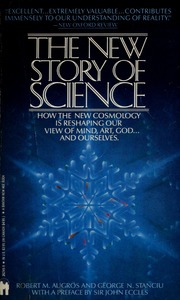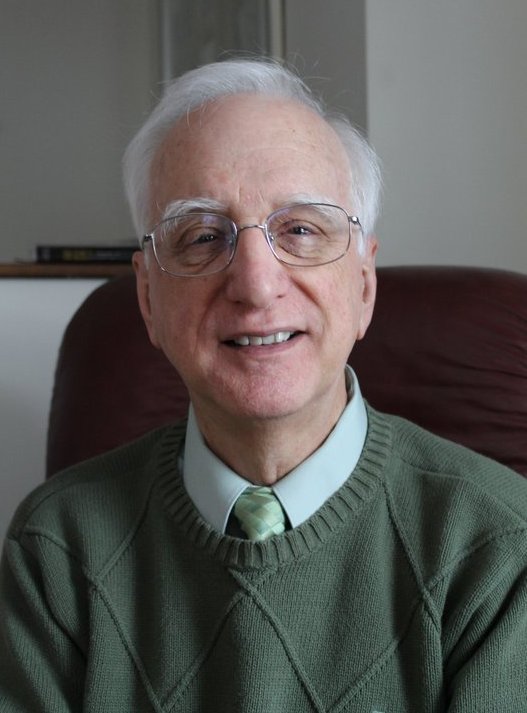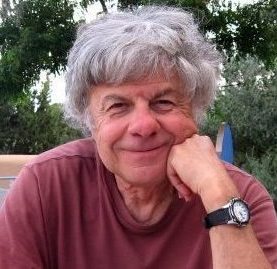|
home | what's new | other sites | contact | about |
|||||||
|
Word Gems exploring self-realization, sacred personhood, and full humanity
Augros & Stanciu's George Stanciu, PhD, theoretical physics
return to "Evolution" main-page
Editor's note: The following discussion derives from Augros & Stanciu's The New Story Of Science, chapter four, "God."
In previous articles in this series, we discussed the issue of chance as causal factor concerning why things are the way they are in the universe. A noteworthy example offered earlier: Dr. Rupert Sheldrake informs us that protein molecules are so complex, must enfold themselves in precise manner, that this could not have happened by chance. This is so because the requisite time for chance to do its creative work here would command far, far more time than that available from the Big Bang to the present. And this temporal hurdle speaks to one small iota of material reality – a protein; not an organ, not a limb, not an organism, but one tiny component of all these others; all of which are far, far more complex than a single protein. Similarly, the grand ubiquity of Beauty as displayed in nature cannot be accounted for by appealing to chance and probability. Beauty, as we’ve seen, is comprised of symmetry, harmony, brilliance, clarity, simplicity – and these, too, not just as stand-alone items, but as interwoven latticework elements of a panoramic Aesthetic Universe. The coming-into-being by chance of the protein is nothing compared to all this Beauteous Cosmic Splendor. “Nature’s beauty [is in] all natural things, living and non-living, and at every level within each living thing, from grassy plain to electron, proton, and neutron, beauty saturates nature. Such abundant beauty of so many kinds and at so many levels could never come from chance. "Physicist Henry Margenau concludes that nature’s beauty is not reducible to either chance or necessity: We do not believe that beauty is only in the eye of the beholder. There are objective features underlying at least some experiences of beauty, such as the frequency ratios of the notes of a major chord, symmetry of geometric forms, or the aesthetic appeal of juxtaposed complementary colors. None of these has survival value, but all are prevalent in nature in a measure hardly compatible with chance. We marvel at the song of the birds, the color scheme of flowers … of birds’ feathers, and at the incomparable beauty of a fallen maple leaf, and it golden edges. Are these qualities useful for survival when the leaf is about to decay? ... “The human body also demonstrates that necessity cannot account for beauty. The human voice is more versatile and expressive than musical instrument. That man has a voice capable of producing beautiful sounds is not demanded by necessity; a dull monotone or a raucous speech would have sufficed to call for help or to communicate physical needs. "Darwin himself recognized that necessity cannot explain man’s musical endowments: As producing musical notes are faculties of the least use to man in reference to his daily habits of life, they must be ranked amongst the most mysterious with which he is endowed. “Necessity might explain why a bird call is beautiful to another bird, but not why it is beautiful to a man. By the same token, why should a leopard be beautiful to a man? Why a thistle? ... “… since beauty is so abundant in nature it cannot arise from chance; there must be some reason for it. But that reason cannot be restricted to one path, since there is no absolute necessity that animals, plants, and non-living things exhibit beauty in the first place. Therefore, the beauty found in nature appears to proceed from a cause not bound by necessity and yet with a reason for acting. Such a cause is a mind. Therefore, a mind is responsible for the beauty of nature. That mind, standing behind nature, all men call God… “Emerson remarks: Never lose an opportunity of seeing anything that is beautiful; for beauty is God’s handwriting – a wayside sacrament. Welcome it in every fair face, in every fair sky, and thank God for it as a cup of blessing. “Elizabeth Barrett Browning captures the same sentiment in two brief lines: God Himself is the best Poet, And the Real is His song. “In the New Story, then, the origin of the universe, the structure of the universe, and the beauty of the universe, all lead to the same conclusion – God is.”
|
|||||||
|
|



